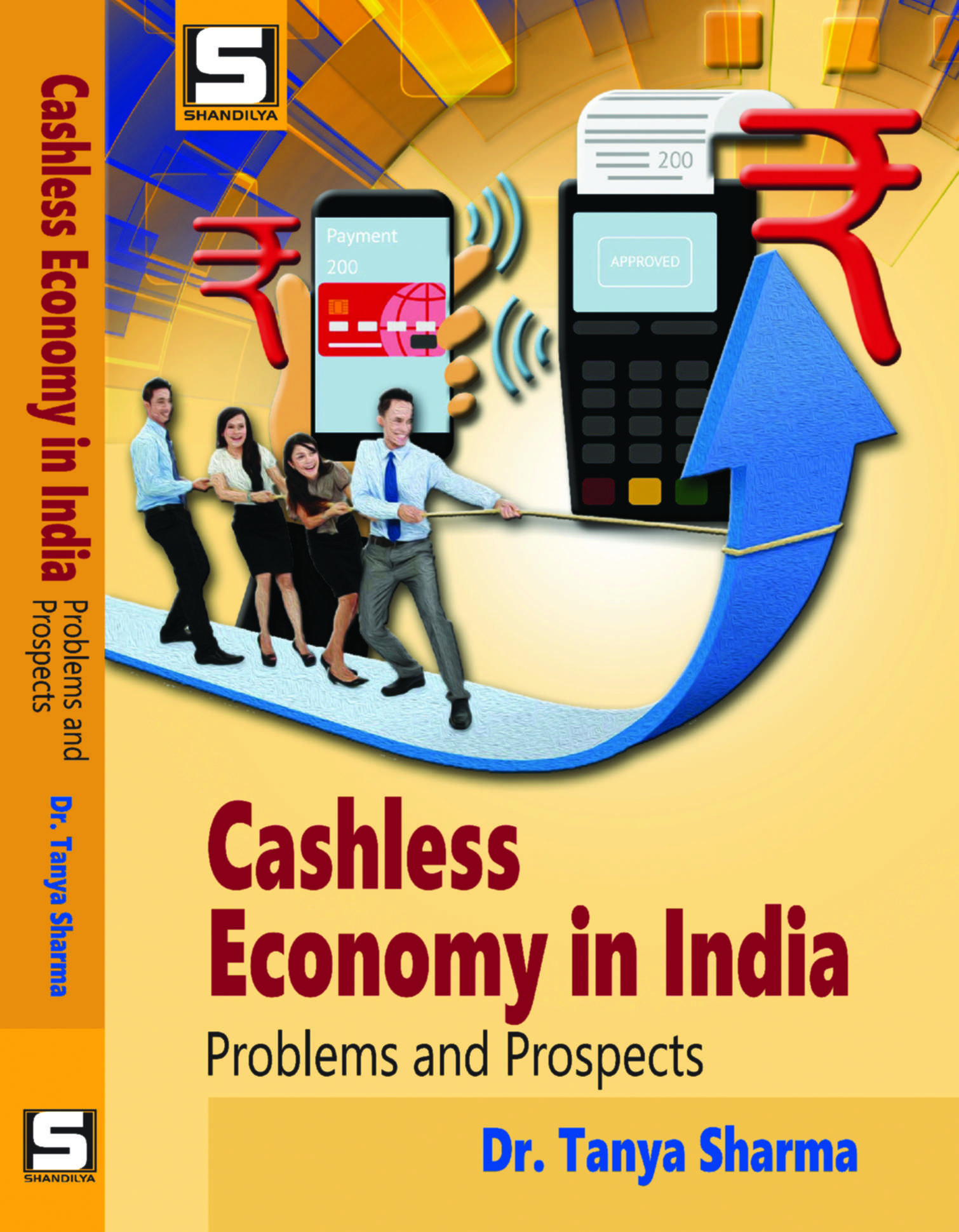Categories of the Books
- 2025
- Biography
- Science
- Sociology
- 2024
- Women Studies
- 2023
- 2022
- 2021
- 2020
- 2019
- 2018
- 2017
- Dr. Debesh Bhowmik
- Agriculture
- Banking
- Covid-19
- Dalits
- Economics
- Education
- Education & Gender
- Environment
- Finance
- Hindi
- History
- Human Rights
- Gandhian Studies
- GST
- Geography
- Insurance
- Law
- Literature
- Migration
- Military Studies
- Military Law
- Mass Media
- Commerce
- Management
- New Books
- NREGA
- Public Administration
- Politics
- Share Market
- Social Work
- Tourism
- Tribes
- Women & Children Studies
- Forthcoming
- Uncategorized
Book & Detail
Cashless Economy in India : Problems and Prospect
-

Author : Tanya Sharma Year of Publication : 2020 ISBN : 9789388147385 Language : English Binding : Hard Bound Pages : 216 Size : 23 cms Categories : 2020, Economics Price : 750
FREE HOME DELIVERY
About the Book :
This book discusses the cashless society, where clumsy and expensive to handle coins and notes are replaced by efficient electronic payments initiated by various types of plastic cards that are expected to have a tantalizing prospect for the twenty-first century. This book analyses emerging trends and the importance of the debit card in the daily lives of Indian society.This book is based on the findings of the primary survey which reveals that the adoption of cashless methods led to financial inclusion which has benefited the economy and further, the adoption of the cashless system has been concentrated towards higher educational attainments which validate the hypothesis of the study.
The findings of the study also confirm that higher cashless mode of transactions has been observed among men than that in women.
First Chapter “Introduction : Cashless Economy”, is introductory in nature which includes historical background, cashless transaction systems, the meaning of cashless, advantages of cashless, methods of cashless transactions, a global comparison of cashless transactions, the challenges of cashless economy, online banking apps for promoting cashless economy, demonetization in a cashless economy.
The Second Chapter “Review of Literature : Cashless Economy” is concerned with reviews of literature. It consists of National and International Reviews.
Third Chapter “Cashless Nudge : Opinion, Knowledge and Awareness” has been divided into two parts—Part I has further been classified under three sections. Section A gives information regarding respondents’ backgrounds, including the demographic characteristics of the respondents. Section B is concerned with the Opinion of Cashless Nudge while, Section C provides Knowledge and Awareness on Cashless Nudge. Part II of this chapter has also been divided into four sections. Section A is Gender-wise Opinion on Cashless Nudge while, Section B is concerned with Age-wise Opinion on Cashless Nudge, Section C gives a picture of the Education-wise Awareness of Cashless Nudge while, Section D is concerned with the Occupation-wise Opinion on Cashless Nudge.
Fourth Chapter “Cashless Nudge : An Observation” explains the empirical observation and analysis of the study mainly in terms of the opinion of the cashless nudge, age-wise, gender-wise and occupation-wise. This chapter highlights the observations of the present research work.
Fifth Chapter is “Cashless Economy : Summary and Conclusions” based on previous chapters mentioned in this study.
Sixth Chapter “Cashless Economy : Policy Implications” is the last chapter which deals with policy implications for future research. The researcher observed that 90 per cent of the workforce are in the unorganized sector and physically accessing banks would mean huge opportunity costs for them. To overcome these problems, cashless transactions will be cheaper and safe for them.
About the Author
Dr. Tanya Sharma has done her Masters in Economics from Patna University (Bihar). Her Ph.D. Thesis is on “Microscopic Evaluation of Cashless Nudge” which is relatively a newer economic practice in India. Dr. Tanya Sharma is a voracious reader and a forthright author.
She has published many of her scholarly works in national and international journals of repute. Dr. Tanya Sharma believes in peer learning and has contributed the economics fraternity through her vibrant presence in Conferences, Seminars, Symposia and other activities carrying academic value.

